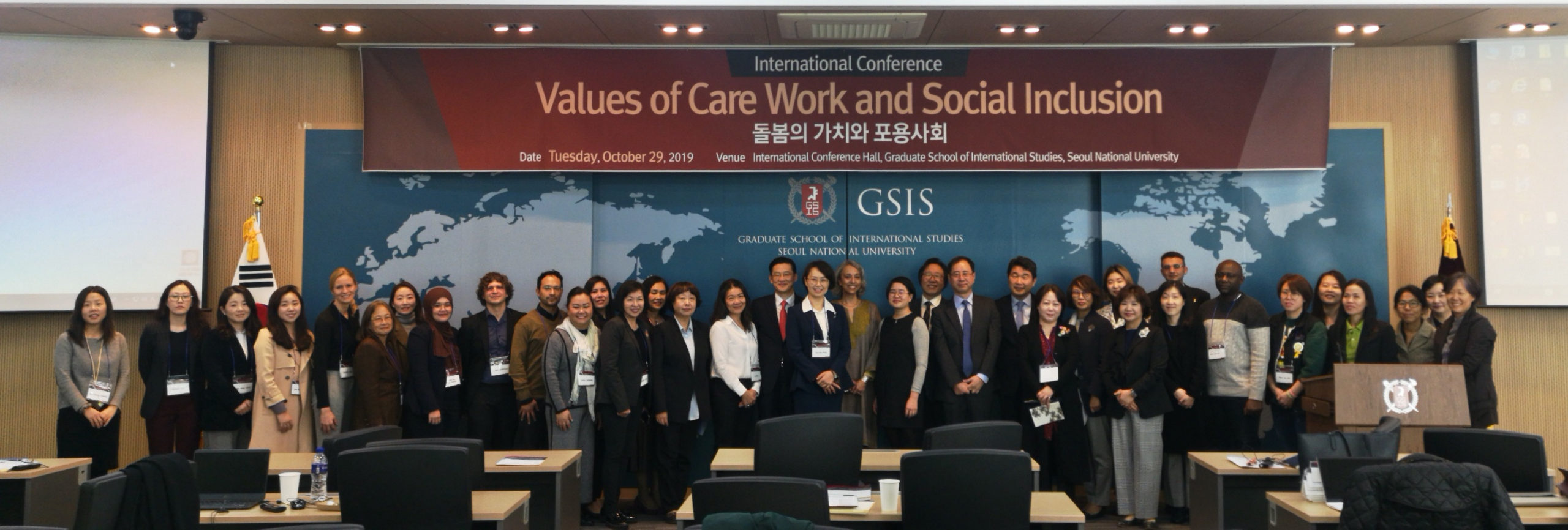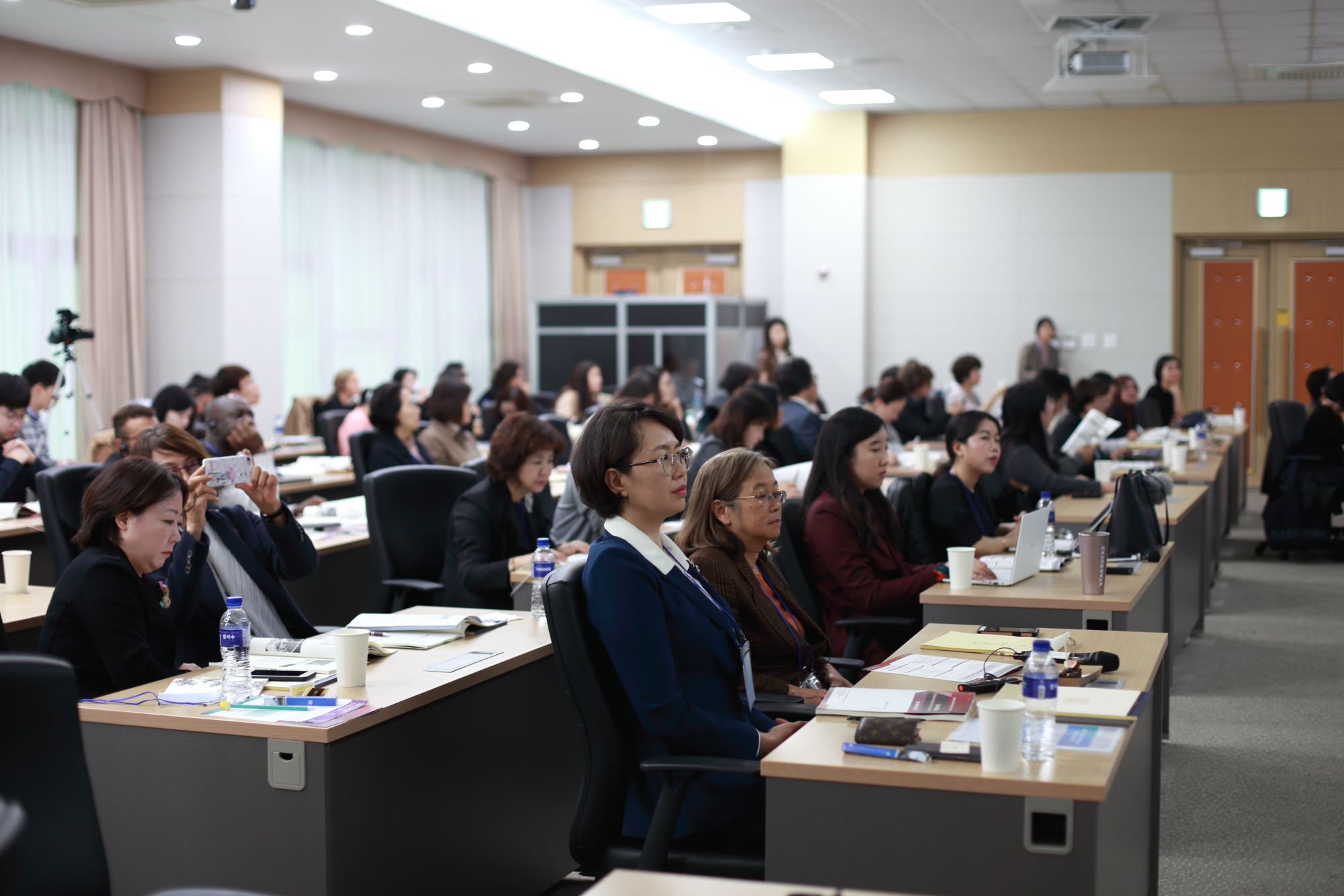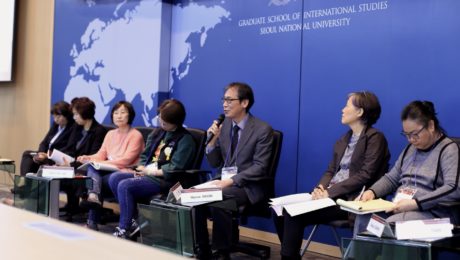GEM-Care Korea: The First Care-Focused Computable General Equilibrium Model
In a joint endeavor between the Center for Transnational Migration and Social Inclusion (CTMS) of Seoul National University’s and the Care Work and the Economy Project, the first gender-aware Social Accounting Matrix (SAM) of South Korea was constructed for the estimation of a new macroeconomic model called GEM-Care (or General Equilibrium Model for Care Analysis). This macroeconomic model, built by Martin Cicowiez and Hans Lofgren, incorporates features that reflect the sources of gender bias in the Korean economy – a gender wage gap, lower labor force participation of women relative to men, and family caregiving that falls heavily on women (Cicowiez and Lofgren 2021).
The findings from the model warn that focusing on the growth of economic production, as measured by GDP, at the expense of the unpaid care work within the family (not included in GDP), can lead to a misleading assessment of the economy’s total productivity and social well-being.
In other words, the gain in GDP-related production that comes mainly from a reallocation of labor away from non-GDP production is ultimately costly for Korea. Simulations in Cicowiez and Lofgren (2021) reveal that policies that alleviate the care burden within families will improve the well-being in the population by freeing up women’s time for employment that matches their education, thus raising women’s wages relative to men’s, and by encouraging a more equitable division of care responsibilities within the family.
As with many other developed countries, Korea faces multiple challenges related to care and gender: meeting the care needs of its rapidly growing elderly population, paving the way for stronger participation of the country’s highly educated female population in the labor force and eliminating gender wage discrimination.
Unless there is more government support for child and elderly care, increased labor supply, especially by women, can come only from an even lower fertility rate and reduced care time for children and the elderly population.
This blog was authored by Shirin Arslan, program manager for the Care Work and the Economy Project.
- Published in Asia-Pacific, Care Infrastructure, Center for Transnational Migration and Social Inclusion, Child Care, Economic Modeling, Elder Care, elderly care, Gender-Aware Macromodels, Macroeconomics, Policy, Research, Rethinking Macroeconomics, South Korea, South Korea the Center for Transnational Migration and Social Inclusion
Stakeholders Come Together in South Korea to Discuss Care Work & amp; Social Inclusion

On October 29, 2019, the Care Work and the Economy Project (CWE-GAM) and its partner in South Korea the Center for Transnational Migration and Social Inclusion (CMTS), which was officially launched in August of this year under the Institute of International Affairs at SNU GSIS, hosted an international conference on “Values of Care Work and Social Inclusion.” Five other institutions joined efforts to lend generous support for this event, including Open Society Foundations and the the William and Flora Hewlett Foundation.
The conference brought together researchers and representatives from civil society organizations to share knowledge on the present state of care provisioning in South Korea, learn about the respective challenges for paid and unpaid caregivers, and discuss necessary policy changes that are grounded in recognition of the value of care work. Stories from Thailand, Malaysia, and Colombia enriched the discussion and provided better perspectives to reflect on the case of South Korea. The participants affirmed the need for enhanced cooperation between the research community and civil society so that the actual voices of care workers can be better heard in the process of policymaking.
The October 29th conference was held as part of a four-day program comprising two expert workshops and two conferences, which aimed to examine the subject of care in the context of solidarity and social inclusion. The Care Work and the Economy Project (American University), lead by co-PIs Maria Floro and Elizabeth King, and CMTS, under the directorship of Ki-Soo Eun of SNU GSIS, has been conducting research with a broad network of international scholars to achieve a deeper understanding of the nature of care work through the use of innovative measures and methods, and to contribute to the development of tools for shaping relevant macroeconomic and social policies.


